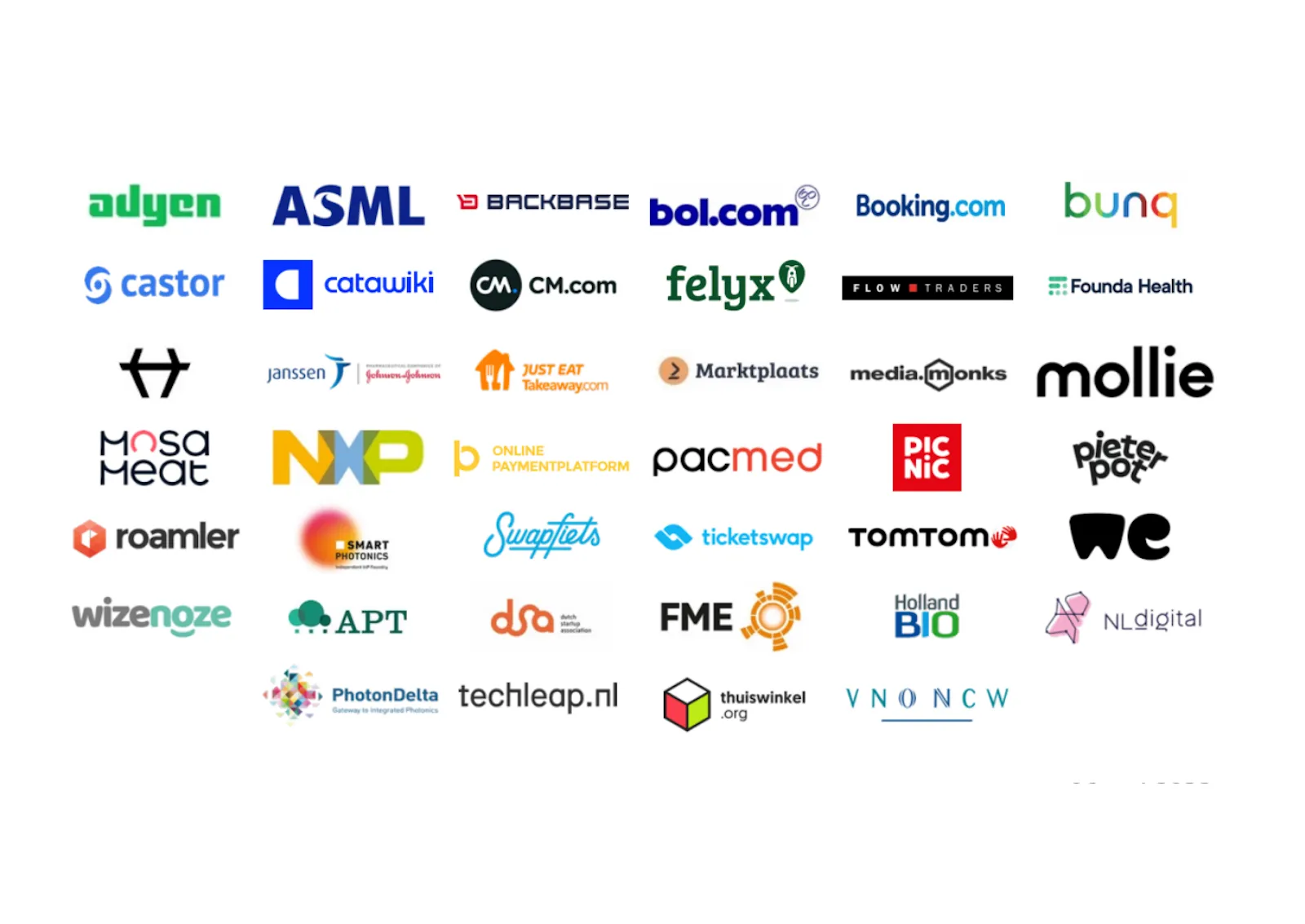June 5, 2022
Call to preserve the 30% ruling for the earning capacity of the Netherlands

The Netherlands currently stands as a formidable player on the global stage, boasting numerous innovative champions. We, from the Netherlands, have evolved into trailblazing entities, encompassing robust start-ups, scale-ups, and forward-thinking growth initiatives – many of which have a European or global outlook. This achievement is underpinned by our significant local contributions, emanating from our main offices in the Netherlands, each nurturing its own cadre of innovation teams.
However, our country’s robust position on the global stage is by no means a given. Talent forms the bedrock of a resilient innovation ecosystem and the realization of future earning potential. The 30% ruling stands out as a pivotal instrument, facilitating the attraction of international talent to the Netherlands and fostering their long-term commitment to our nation. Remarkably, between 15 and 70 percent of our workforce hails from beyond Dutch borders.
The Netherlands aspires to cultivate long-term economic growth
This administration is actively taking strides to secure the future earning capacity of the Netherlands, notably through initiatives like the Growth Fund. For the knowledge development, research, and innovation that underpin our earning potential, it is imperative that businesses and knowledge institutions in the Netherlands can rely on a steady influx of talent.
The Netherlands aims to fortify its position in the world alongside Europe
The Netherlands harbors ambitions of leadership in digitization and emerging (key) technologies, striving towards strategic autonomy. The government is committed to enhancing its indigenous innovation capabilities, thereby securing a formidable European standing. We stand as living proof that the Netherlands can generate companies and projects that lead in their respective domains. Sustaining a position at the forefront of the world requires continuous innovation (both in products and technologies, such as Artificial Intelligence), a feat only achievable with the right talent pool in the Netherlands.
In-house development of technology, innovation, and R&D is indispensable
Autonomy hinges on the critical axis of knowledge development. Talent serves as the catalyst for creativity and innovation, and the Dutch knowledge landscape thrives on it. A diverse talent pool aids in better understanding and serving the global community. Our employees play a pivotal role in fundamental research within knowledge institutions and drive innovation within our companies, ultimately contributing to our growth. The spillover effect from knowledge-intensive and innovative companies positively impacts (SME) suppliers and end users alike.
The Netherlands faces a shortage of homegrown talent; talent is a scarce commodity
The Netherlands grapples with a substantial shortage of researchers, data scientists, product developers, and software engineers. These specialists are not only scarce but also inadequately available within our borders. Talent shortage emerges as the primary bottleneck for 50% of scale-ups, and this deficit is on the rise. Retraining and educational programs, in which we are actively investing, are lengthy endeavors. Without knowledge workers from abroad, our competitiveness wanes, and the Netherlands cannot fully unleash its innovation potential.
Intense global competition for talent
The scarcity of these talents isn’t unique to the Netherlands; it’s a global phenomenon. The competition among countries is fierce and escalating. In the race to attract tech talent, the Netherlands contends with the likes of the US, London, Berlin, Dubai, Tel Aviv, Singapore, Taiwan, Hong Kong, and Shanghai. Tech talent, being inherently international, easily flows across borders due to its scarcity in the global labor market. Our competition extends beyond innovation climates and the international allure of cities; it also encompasses the cost of living and salary considerations. Except for Germany, every Western European country offers favorable tax arrangements for foreign workers. The 30% ruling ensures that Dutch companies, ranging from start-ups to multinational corporations, and knowledge institutions can maintain a competitive edge. The benefits of this scheme are directly extended to our employees.
Employees and companies place their trust in a reliable government
Any potential reduction or abolition of the 30% ruling, which already underwent significant cutbacks in 2019, would reverberate significantly across a substantial segment of our workforce, particularly those in challenging-to-fill knowledge-intensive roles. Knowledge workers who relocated to the Netherlands, either individually or with their families, did so with the expectation that the 30% ruling applied to them and would continue to do so. Their move to a new country and the ensuing financial commitments were based on the information available at that time. A curtailment or termination of this scheme would thus have an unforeseen impact on a large group of individuals.
Preserving the Attractiveness of the Netherlands for Foreign Talent with the 30% Ruling
Ensuring an ample supply of talent is invaluable for attracting and retaining innovative activity in the Netherlands, thereby sustaining the country’s earning capacity. The 30% ruling plays a pivotal role in this regard, contributing significantly to the continued growth of our companies. We welcome an open dialogue to further elaborate on the importance of attracting and retaining talent for the Netherlands and the role the 30% ruling plays in this endeavor.

 NL digitale sector loopt impact op D&I in technische rollen mis volgens...
NL digitale sector loopt impact op D&I in technische rollen mis volgens...